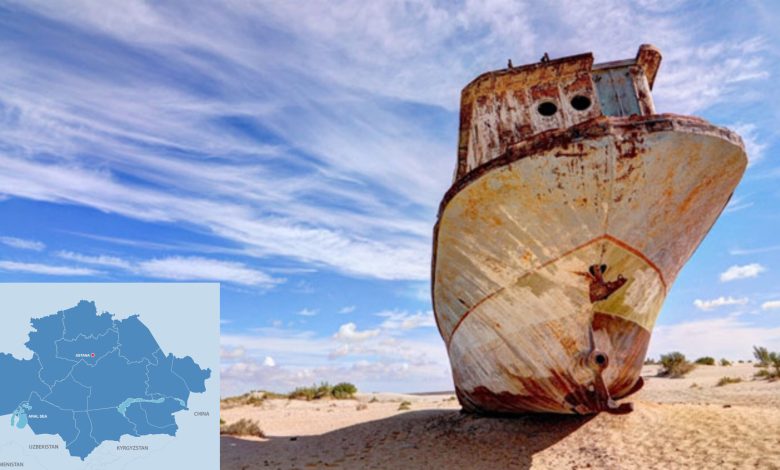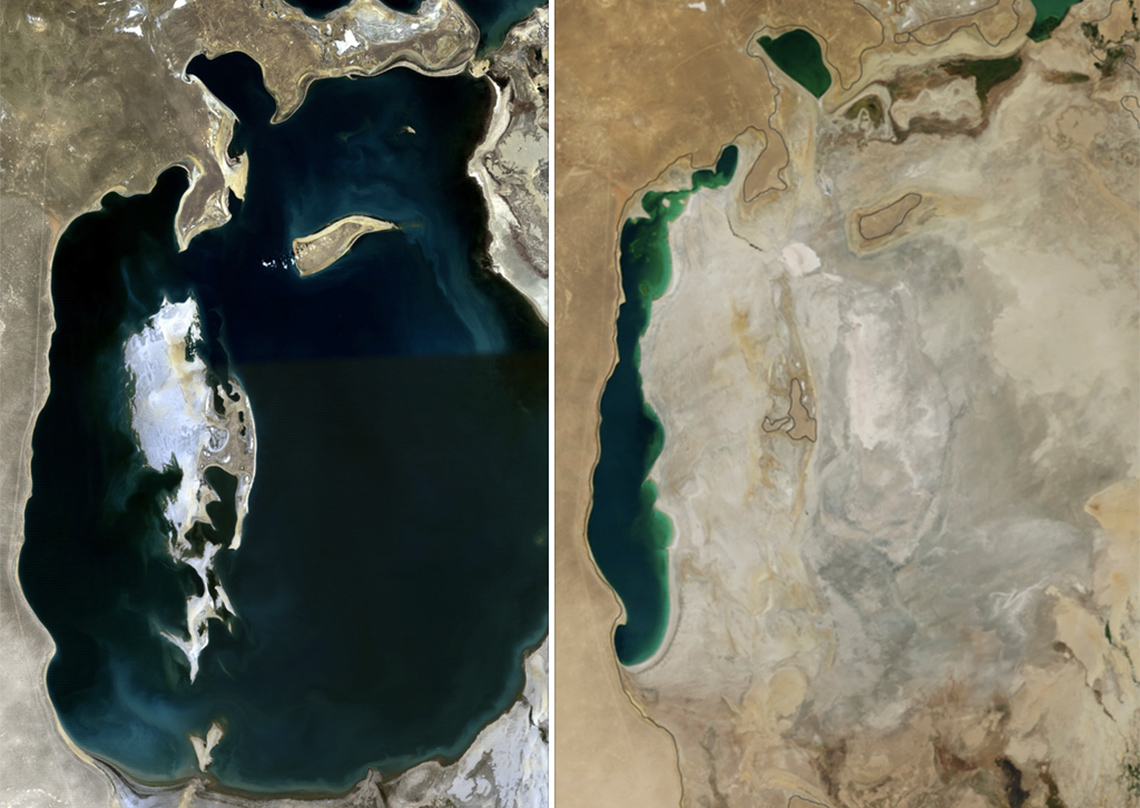Kazakhstan Leads Aral Sea Revival Efforts

ASTANA – Kazakhstan took over the chairmanship of the International Fund for Saving the Aral Sea (IFAS) this year. During its three-year presidency, Kazakhstan will determine the course of the Aral Sea’s revival.

Photo credit: advantour.com Click to see the map in full size. The map is designed by The Astana Times.
In an interview with Kazinform, Yerbolat Pernekhan, the head of the Department of Water Cooperation for Central Asia at the Ministry of Water Resources and Irrigation, shared the planned initiatives and projects during this period.
“In January, with the agreement of the Central Asian countries, the Kazakh President approved Askhat Orazbay as chairman of the IFAS Executive Committee. Procedures for organizing the IFAS Executive Committee office in Astana were completed, with the government providing offices and apartments for representatives from the Kyrgyz Republic, Tajikistan, Turkmenistan, and Uzbekistan,” said Pernekhan.

NASA image of the Aral Sea in 1989 (left) and 2014 (right). Photo credit: Wikipedia
He highlighted IFAS’s engagement with international organizations and its initiatives on global platforms.
“At the 10th World Water Forum, the IFAS Executive Committee convened a sub-regional session on Transboundary Water Cooperation in the Aral Sea Basin for a Better Future in Indonesia on May 22. In June, in Tajikistan, the committee, in partnership with the World Bank, hosted Achieving Greater Water Use Efficiency in the Central Asian Region, a roundtable with Central Asian water ministers,” he said.
The Kazakh government and international organizations have been addressing the aftermath of ecological catastrophes, particularly by focusing on alleviating the burdens of local populations. In April, the United States Agency for International Development (USAID) led an expedition to the USAID Oasis project on the former Aral Sea shores in the Kyzylorda Region, aiming to restore the local ecosystem with tests on black saxaul shrubs.
Pernekhan emphasized Kazakhstan’s goal during its IFAS chairmanship to foster constructive cooperation on comprehensive water resource management, ecology, Sustainable Development Goals (SDGs), socio-economic aspects, and green economy initiatives in Central Asia.
“To achieve these goals, efforts will focus on enhancing IFAS’s organizational structure and legal framework, implementing the Action Program for the Aral Sea Basin Countries 2020-2030, and creating a sustainable regional cooperation mechanism for effective water and energy resource management,” he said.
Kazakhstan also plans to initiate the second phase of the project to preserve the Northern Aral Sea this year, partnering with the World Bank.
The World Bank has been financing the Aral Sea renaissance initiatives since the early 2000s through the Regulation of the Syr Darya River and Preservation of the Northern Aral project, also known as RRSSAM-1. The IFAS played a key role in implementing the project.
“The second phase of the project [RRSSAM-2] incorporates the construction of the Koksaray counter-regulator and previously established facilities, aiming to enhance water resource management in Kazakhstan’s portion of the Syr Darya River basin. The feasibility study for this phase is nearing completion,” said Pernekhan. “The project includes plans to increase water volume by five cubic kilometers, covering 1,000 square kilometers of seabed. This effort will mitigate salt and dust storms while stabilizing pre-delta lakes such as Kamyshlybash and Akshatau.”
The Ministry of Water Resources and Irrigation is also developing proposals for a water-energy cooperation mechanism among Central Asian countries, considering environmental, irrigation, energy, food, and climate change interests in the Aral Sea basin.
The Ministry of Ecology and Natural Resources plans to plant 1.1 million seedlings on a drained part of the Aral Sea by the end of 2025.
Regarding the current situation of the Aral Sea basin, Pernekhan highlighted that as of June 15, the Northern Aral Sea contained 21.4 cubic kilometers of water, an increase of 1.2 cubic kilometers from last year.
“During the autumn-winter period of 2023-2024, 1.3 cubic kilometers of water were directed to the Northern Aral Sea. Overall, for the irrigation season spanning from April 1 to Oct. 1, it is projected that 997 million cubic meters of water will be supplied,” he said.
The article was originally published in Kazinform.





